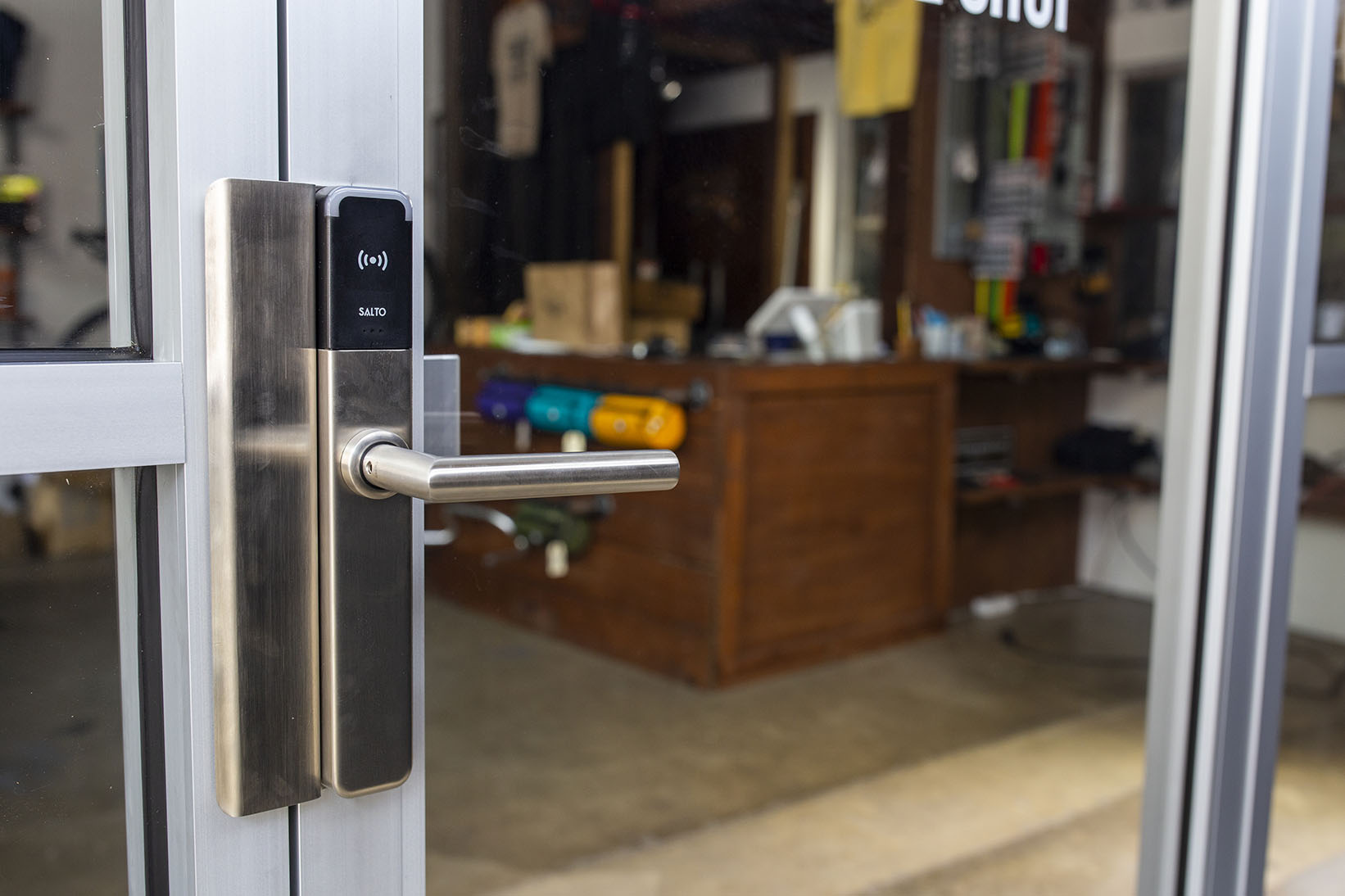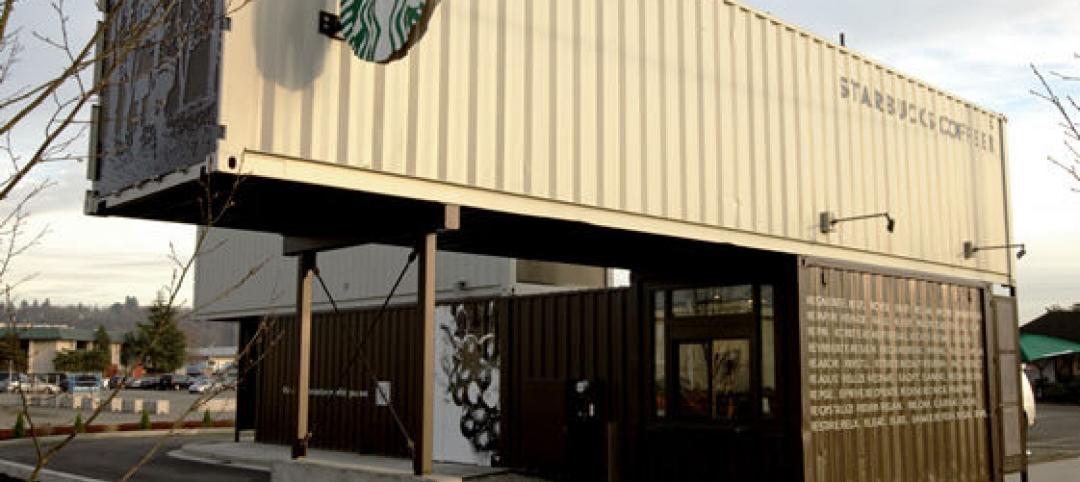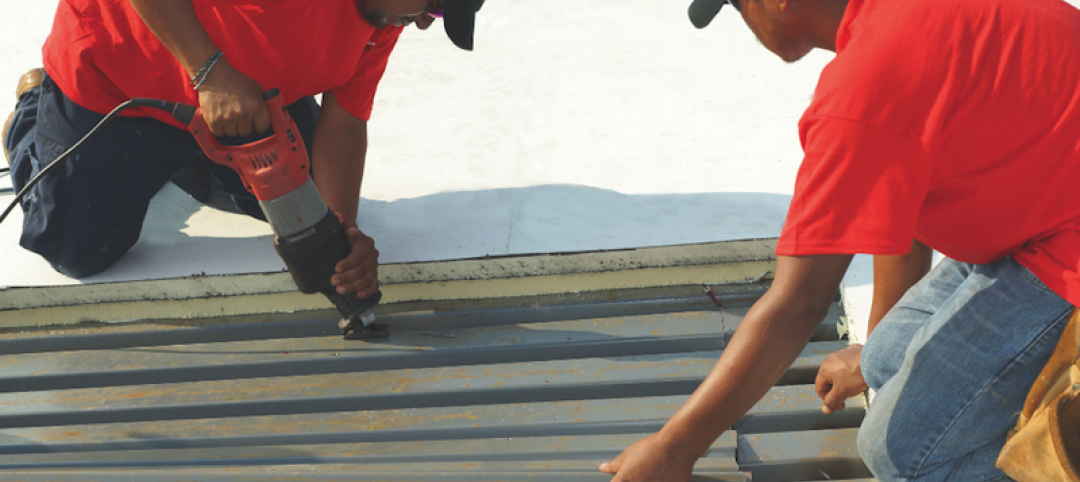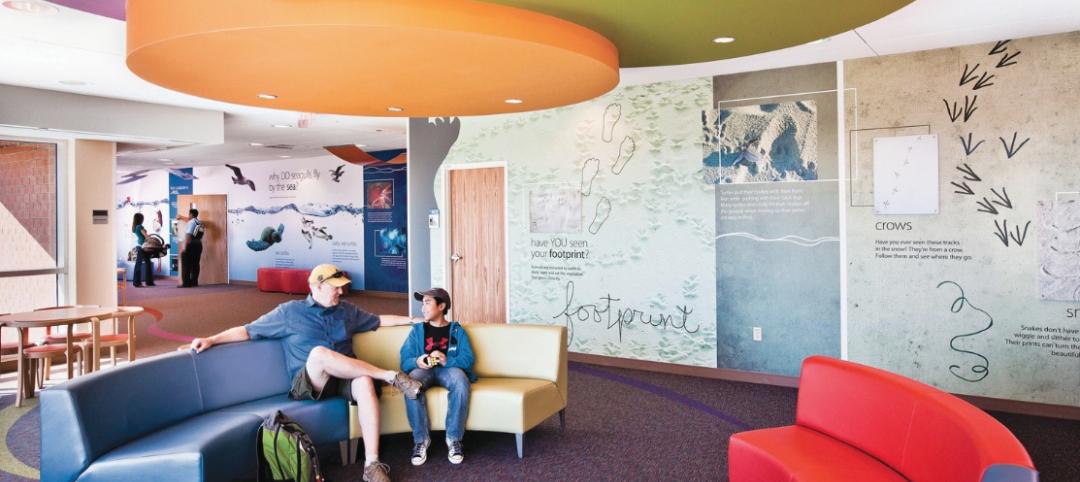Traditional lock-and-key systems are rapidly being replaced by keyless entry systems in retail businesses. An obvious advantage of this evolution is the elimination of physical keys, a burdensome task to manage. However, keys-as-a-service (KS) — in which permissions and access are controlled by cloud-based technology — offers other important benefits. One such benefit lies in the valuable data these systems collect.
“Keys-as-a-service systems maintain a comprehensive log of every access event,” says John Wright, SALTO Systems Retail & Fitness Industry Business Leader. “This includes information on who accessed which doors and when, providing detailed insights into the retail space’s usage.” That data extends not only to doors, but to storage cabinets, lockers, showcases — anything that requires physical security.
What the Data Reveals
One main insight that systems like SALTO KS can provide is user behavior information. Who accessed which doors and when? Tracking that information can also shed light on traffic patterns, frequently used access points, and even potential security breaches.
“This user behavior data can be analyzed to optimize staffing and operating hours, enhancing overall operational efficiency,” says Wright. This also benefits customers, he adds, when understanding peak access times and busy areas can help retailers maximize store layout and manage traffic, resulting in a better customer shopping experience.
Furthermore, the system reports on its own status, including its battery life and functionality, so that it can be continuously maintained in top operating condition.
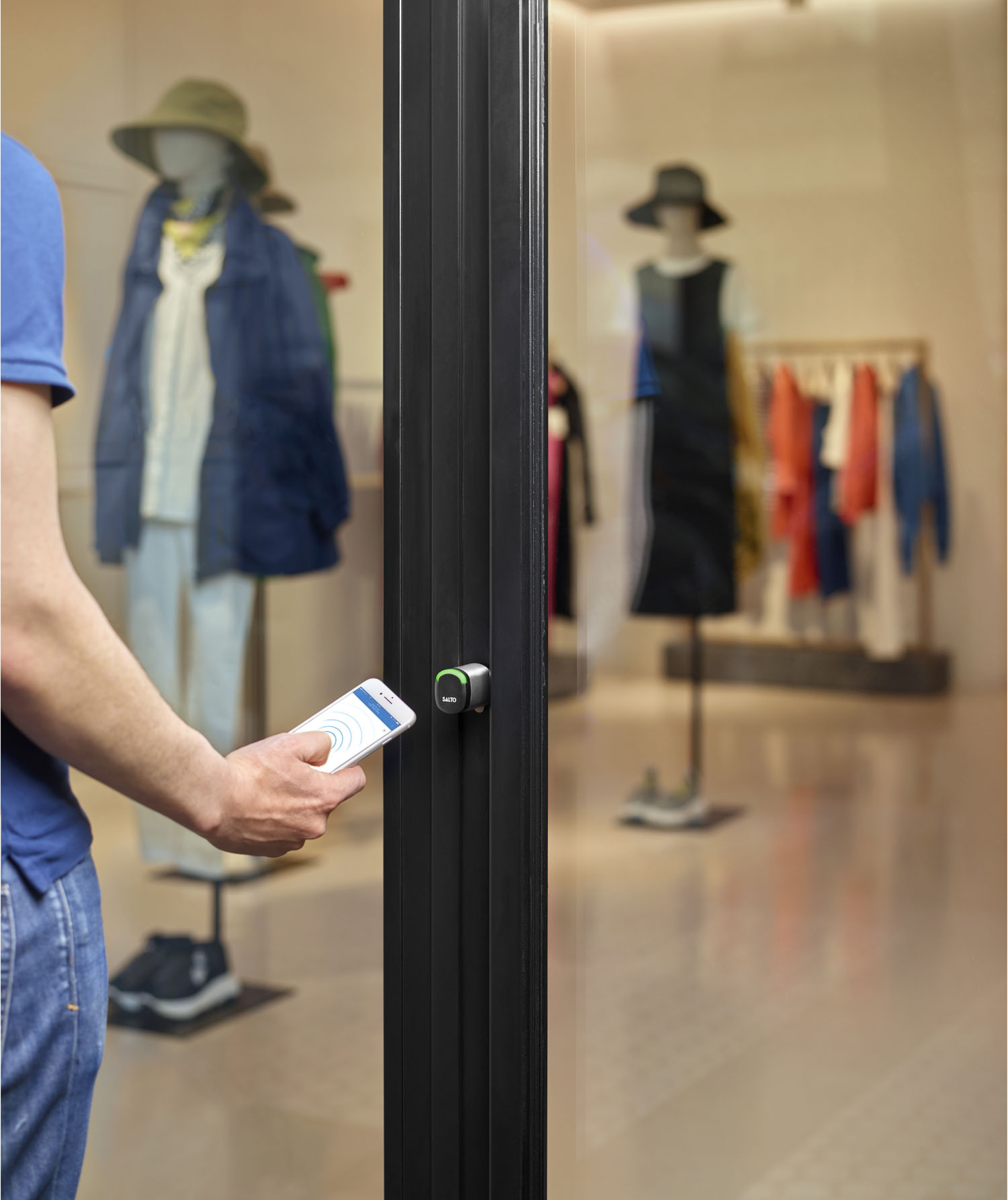 Global Scalability
Global Scalability
SALTO’s KS data collection capability becomes even more valuable in a distributed retail landscape, where businesses span multiple locations and even countries. Wright notes, “Regardless of geographical boundaries, all access control points connect to a unified system. This means that all access data coming in from multiple locations is collected and stored centrally, making it easily accessible and manageable from anywhere in the world.” That level of global, real-time visibility is essential for large-scale retail operations.
As an organization expands into new retail locations, the access information from all sites, both new and existing, is seamlessly integrated into a single KS database. In addition, the same access control standards are implemented across all stores, eliminating concerns about inconsistent application of security measures in different locations.
The data collected by the KS system can be used to generate insightful reports that can include security audits, efficiency data, and behavioral analyses. This information can help with strategic decision-making, policy modifications, and enhanced operations, according to Wright.
A Resource for Business Intelligence
There are several important ways the wireless access data from the SALTO KS system can be used:
- Customer traffic patterns. Understanding peak shopping periods allows retailers to staff appropriately and adjust store hours.
- Store layout optimization. Product placement and store layouts can be optimized based on the highest traffic areas.
- Resource allocation. If a particular store receives high levels of traffic, retailers may decide to invest more in that location or add staff.
- Security planning. Retailers can enhance security measures in locations with frequent unauthorized access attempts.
- Maintenance. Device self-monitoring allows for proactive maintenance operations, reducing the chance for unexpected equipment failures.
- Expansion strategy. Comparing data among stores affords insight into what contributes to a location’s success, which can be used in future growth planning.
- Staff training. Data on unauthorized access attempts can reveal areas in which staff may need retraining.
In a highly competitive and challenging landscape, retailers who understand customer patterns, have a solid handle on security compliance, and manage their resources wisely are in a better position to thrive. Cloud-based keys-as-a-service wireless access systems make this possible.
Related Stories
| Oct 7, 2013
10 award-winning metal building projects
The FDNY Fireboat Firehouse in New York and the Cirrus Logic Building in Austin, Texas, are among nine projects named winners of the 2013 Chairman’s Award by the Metal Construction Association for outstanding design and construction.
| Oct 7, 2013
Reimagining the metal shipping container
With origins tracing back to the mid-1950s, the modern metal shipping container continues to serve as a secure, practical vessel for transporting valuable materials. However, these reusable steel boxes have recently garnered considerable attention from architects and constructors as attractive building materials.
| Oct 4, 2013
Mack Urban, AECOM acquire six acres for development in LA's South Park district
Mack Urban and AECOM Capital, the investment fund of AECOM Technology Corporation (NYSE: ACM), have acquired six acres of land in downtown Los Angeles’ South Park district located in the central business district (CBD).
| Sep 24, 2013
8 grand green roofs (and walls)
A dramatic interior green wall at Drexel University and a massive, 4.4-acre vegetated roof at the Kauffman Performing Arts Center in Kansas City are among the projects honored in the 2013 Green Roof and Wall Awards of Excellence.
| Sep 23, 2013
Six-acre Essex Crossing development set to transform vacant New York property
A six-acre parcel on the Lower East Side of New York City, vacant since tenements were torn down in 1967, will be the site of the new Essex Crossing mixed-use development. The product of a compromise between Mayor Michael Bloomberg and various interested community groups, the complex will include ~1,000 apartments.
| Sep 19, 2013
What we can learn from the world’s greenest buildings
Renowned green building author, Jerry Yudelson, offers five valuable lessons for designers, contractors, and building owners, based on a study of 55 high-performance projects from around the world.
| Sep 19, 2013
6 emerging energy-management glazing technologies
Phase-change materials, electrochromic glass, and building-integrated PVs are among the breakthrough glazing technologies that are taking energy performance to a new level.
| Sep 19, 2013
Roof renovation tips: Making the choice between overlayment and tear-off
When embarking upon a roofing renovation project, one of the first decisions for the Building Team is whether to tear off and replace the existing roof or to overlay the new roof right on top of the old one. Roofing experts offer guidance on making this assessment.
| Sep 17, 2013
World's first 'invisible' tower planned in South Korea
The 1,476-foot-tall structure will showcase Korean cloaking technology that utilizes an LED façade fitted with optical cameras that will display the landscape directly behind the building, thus making it invisible.
| Sep 16, 2013
Study analyzes effectiveness of reflective ceilings
Engineers at Brinjac quantify the illuminance and energy consumption levels achieved by increasing the ceiling’s light reflectance.


